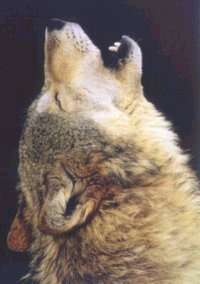|

Animals have two types of DNA, nuclear (nDNA) and mitochondrial (mtDNA). Nuclear DNA is found in the nucleus of a cell. The genes coded for by nDNA are responsible for external characteristics and for behavior, but they also have important regulatory functions inside the cells. Mitochondrial DNA is separate and distinct from nDNA and is found in the mitchondria of the cell. The gene coding here is strictly regulatory and has little effect on external characteristics or behavior in comparison to nDNA..
Nuclear DNA occurs in the cell as tightly packed units called chromosomes and each cell has two copies of each chromosome. One pair of chromosomes are involved in sex-determination and are, therefore, called sex chromosomes; females have two X chromosomes and males have an X and a Y. The other chromosomes are called autosomes. All mammals have only one pair of sex chromosomes, but the number of autosomes varies according to species.
Genes are discrete pieces of DNA on the chromosomes that code for particular gene products, which are proteins. Slightly different forms of the same gene are referred to as alleles and each chromosome pair has two alleles; some alleles are dominant and are always expressed, while others are recessive and are only expressed when both alleles of a gene are recessive.
|

